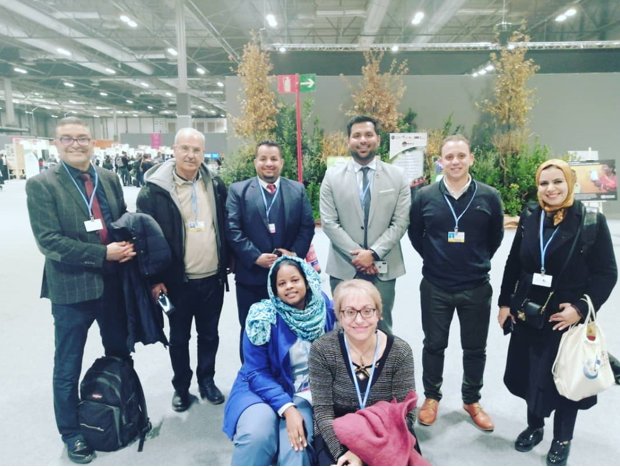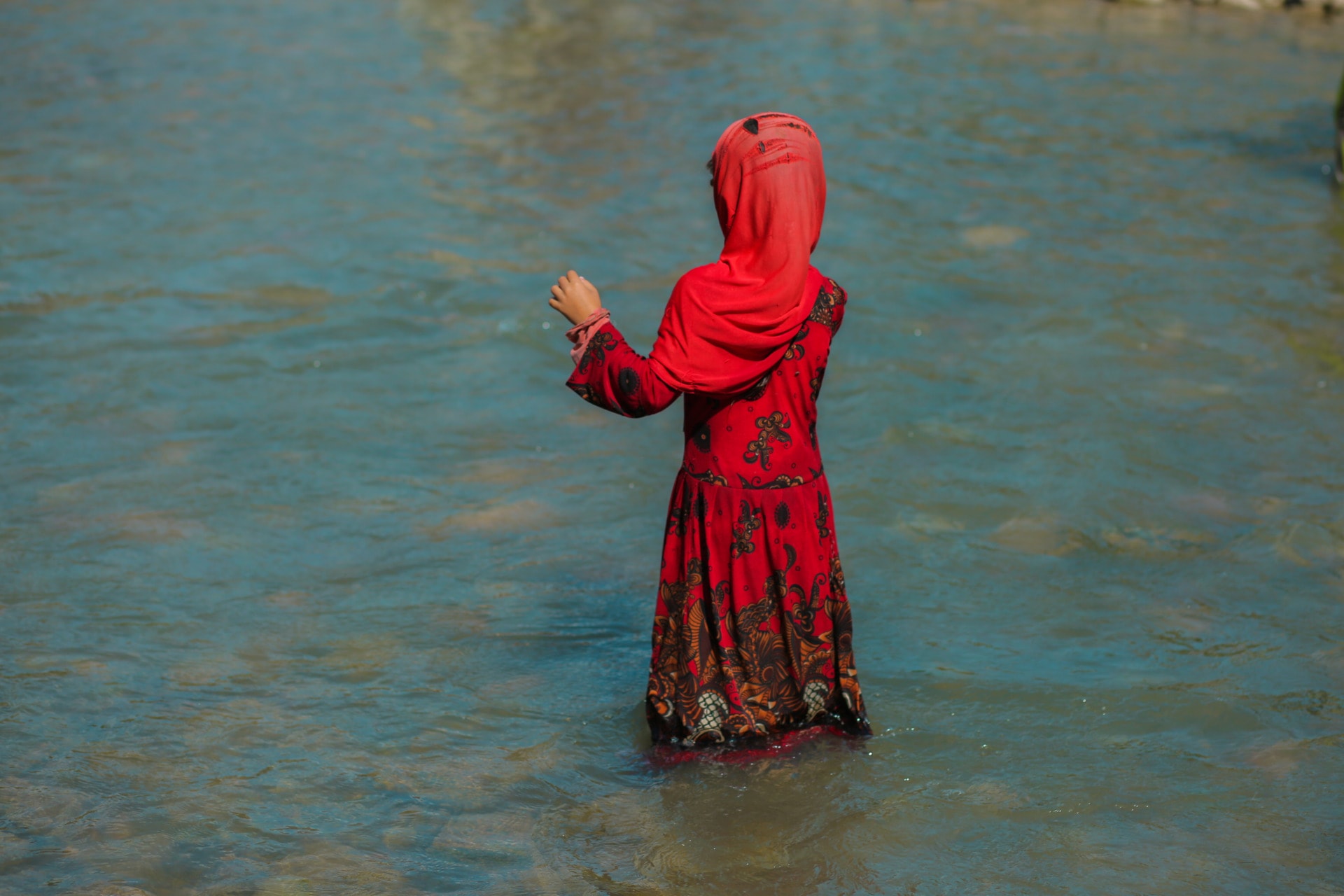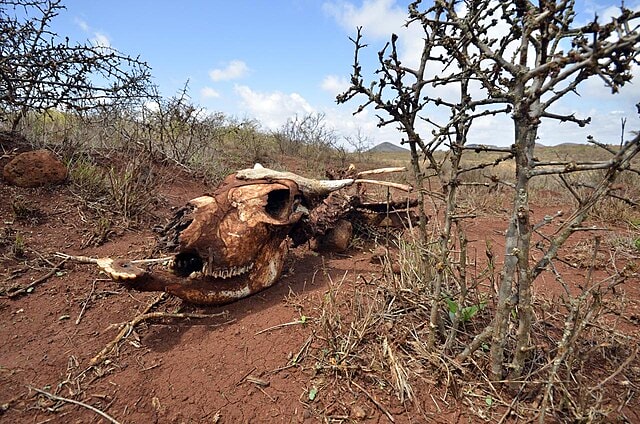The United Nations Framework Convention on Climate Change (UNFCCC) has announced that COP27 and COP28 will be held in Egypt and the United Arab Emirates respectively. With this announcement, the Middle East and North Africa (MENA) region takes the center stage in the international climate arena for the first time in history.
The MENA region is experiencing a rapid increase in the youth population, which is expected to double by mid-century, with approximately 271 million young people living in the region. Several countries are expected to grow their populations by almost 50% by 2030, with Egypt having the largest absolute increase. Despite a potentially young population, it has the lowest civic engagement in the world due to violence, social norms and other factors.
As a region facing devastating climate impacts that can exacerbate existing tensions, it is critical to engage young people in climate resilience and create green jobs in the process. At COP27, ambitious, innovative and equitable solutions are expected.
I had the pleasure of meeting @omniaelomrani1, along with Engineer, @selbattouty and Counselor @Amressam85, to discuss the crucial role of Youth at #COP27 and their contribution to activities and initiatives in the lead-up to the summit in the coming weeks. @cop27p pic.twitter.com/Bg8LLm3r99
— Mahmoud Mohieldin (@MMohieldin27) August 4, 2022
According to the UAE-run news agency Wam, at a meeting session that brought together UAE Minister of Climate Change and Environment Mariam bint Mohammed Almheiri, UAE Minister of State for Youth Affairs Shamma bint Suhail Al Mazrouei, and the Minister of Environment of Egypt Dr Yasmine Fouad, the ministers stated that COP27 and COP28 will focus on enhancing the participation of young people in all aspects of climate action and solutions as the13th Annual ASDA’A BCW Arab Youth Survey revealed that more than half of young Arabs (56%) said they are concerned about climate change, and that a similar number will boycott a brand seen to be operating in a way that damaged the environment.
This compelling sentiment reflects the growing concerns about climate change, climate action and the regional governments’ role in mitigating climate issues among young Arabs. The region’s youth look set to ensure governments and businesses act responsibly when it comes to climate action by acting with their wallets.
Nearly two-thirds (63%) of GCC youth (Saudi Arabia, Kuwait, the United Arab Emirates, Qatar, Bahrain, and Oman) are willing to boycott a brand that does not respect the environment, followed by over half (56%) of young Arabs in North Africa and 51% in the Levant. This finding was released today by ASDA’A BCW, the leading public relations consultancy in MENA.
Related Articles: Youth, a Not-So-Secret Formula for Peace and Sustainable Development | Youth Activists Disappointed After Landmark Pre-COP Youth4Climate Event
Discussions also pointed to Egypt’s hosting of COP27 as an opportunity to emphasize climate adaptation and financing for adaptation. At the opening session of the Arab Forum for Sustainable Development on March 15, 2022, UN Deputy Secretary-General Amina Mohammed said COVID‑19 had reversed the Arab region’s first signs of progress towards the SDGs.
In the region, the rich are getting richer while unemployment rates are now one of the highest in the world — particularly among young people.
As a witness to COP23, COP25, and COP26, I can say that there is a huge lack of participation among Arab Youth in COP negotiations compared to other regions of the world. On average, between 10-30 young people from the MENA region attended previous COPs, with the exception of COP18 and COP22 which were held in Qatar and Morocco respectively.
There are many causes for the lack of participation and engagement of the Arab Youth in the international climate arena, such as the lack of financial support from Arab governments, lack of advocacy and awareness of the importance of climate change among the Arab Youth, the lack of Youth engagement in climate change mitigation and adaptations programs at the national level, as well as high unemployment rates and conflict, which forces the regional Youth to focus on their daily needs instead of fighting climate change.

Before each COP, YOUNGO, the official youth constituency at the UNFCCC, always calls on the Youth and Youth-Lead NGOs worldwide to organize a local Conference of Youth (LCOY) as well as a regional Conference of Youth (RCOY), which aim to empower Youth and build their capacity in climate change and climate actions — and to play a key role in advocacy and climate action and adaptation at UNFCCC negotiations.
As #COP27 President’s Youth Envoy, Dr. @omniaelomrani1 will facilitate the meaningful and inclusive engagement of youth and youth organizations globally and strive to ensure that young voices are heard in the run-up to, during and beyond COP27 – as equal and natural partners. pic.twitter.com/1yteymMDko
— YOUNGO (@youngo_unfccc) August 2, 2022
However, few LCOYs have been organized in the MENA region as a result of a lack of funding. YOUNGO runs various Working Groups, with each focusing on specific aspects of climate change during UNFCCC negotiations and events, to ensure that the perspectives of young and future generations are taken into account in multilateral decision-making processes.
In 2009, there was a general intention among the youth constituents, and also from the perspective of the UNFCCC Secretariat, to formalize the participation of youth at UNFCCC. This led to about a year-long process of setting up the youth as an observer constituency to UNFCCC.

Each year, YOUNGO organizes the Action for Climate Empowerment (ACE) Youth Forum (YF) which brings youth delegates together to inform the creation of the next ACE Work Programme and provide the space for sharing ACE best practices, challenges, and partnership opportunities.
Article 12 of the Paris Agreement expands upon Article 6 of the Convention by outlining six elements to achieve empowerment and engagement goals: education, training, public access to information, public awareness, public participation and international cooperation on climate action. Collectively, these six elements are referred to as “Action for Climate Empowerment” — or “ACE” for short.
At COP23 in Bonn, Germany, five Youth from the MENA region were selected to participate in the Action for Climate Empowerment (ACE) Youth Forum (YF). Not many Young people are able to participate in the COPs because the formal accreditation process of the UNFCCC via authorized NGOs doesn’t allow everyone to participate. Meanwhile, some of the Youth accredited organizations in the MENA have been restricted to a small number of people by the quota set by UNFCCC, which sometimes only allows two people to participate, limiting the possibility for the Youth’s engagement at COP.
A reason for this restricted access to opportunities among Arab Youth is that their civic engagement levels are considered one of the lowest in the world. Given that their authoritarian governments often ban public protests, even when they are peaceful, it should come as no surprise that few are marching in the streets and that the media coverage, reporting, and attention is limited when it comes to climate.
However, this does not mean that youth climate activism or the youth climate movement in the Middle East does not exist. As a matter of fact, during COP18 in Doha, young people from the MENA region protested loudly for to raise awareness of climate issues and their impact.
Ultimately, though these daunting challenges show that the Arab Youth’s role and engagement in COP27 and COP28 could be limited unless Arab governments support and encourage young people to attend and actively participate in the climate conference as well as to work on building capacity to fight climate changes in their countries.
As the MENA region is set to experience devastating climatic impacts that can exacerbate existing tensions, it is crucial to engage young people. We count on the support of youth organizations to assist them in advocating for climate change in the Arab world and to support the Arab youth during the climate conferences that will be held in the region. As a result, young people will be empowered and will understand climate action through active participation in developing programs and policies to mitigate the effects of climate change.
Editor’s Note: The opinions expressed here by the authors are their own, not those of Impakter.com — In the Featured Photo: Climate change protest. Photo credit: Pexels.












